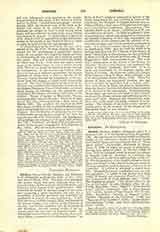

Cordell, CHARLES, English missionary priest, b. October 5, 1720; d. at Newcastle-on-Tyne, January 26, 1791. He was the son of Charles Cordell and Hannah Darell, of the well-known family of Scotney Castle and Calehill, Kent, and was educated first at “Dame Alice’s School”, Fernyhalgh, afterwards at Douai, where, in 1739, he began his course of philosophy. Having been ordained priest, he left the college June 10, 1748, for England, where he served the mission at Arundel (1748-55), Rounday, in Yorkshire, the Isle of Man, and finally Newcastle-on-Tyne (1765-91). In 1778 the presidency of the English college at Saint-Omer was offered to him, but he would not accept it. He was a scholarly, book-loving man, of some note as a preacher. In politics he remained a stanch Jacobite. He published many translations and one original pamphlet, “A Letter to the Author of a Book called `A Candid and Impartial Sketch of the Life and Government of Pope Clement XIV‘” (1785). The translations include “The Divine Office for the Use of the Laity” (4 vols., Sheffield, 1763; 2d ed., 2 vols., Newcastle, 1780); Bergier’s “Deism Self-refuted” (1775); Caraccioli’s “Life of Pope Clement XIV” (1776); Letters of Pope Clement XIV (2 vols., 1777); Fronsletin’s “Travels of Reason” (1781); Fleury’s “Manners of the Christians” (1786) and “Manners of the Israelites” (1786); “Larger Historical Catechism” (1786); and “Short Historical Catechism” (1786).
EDWIN BURTON

